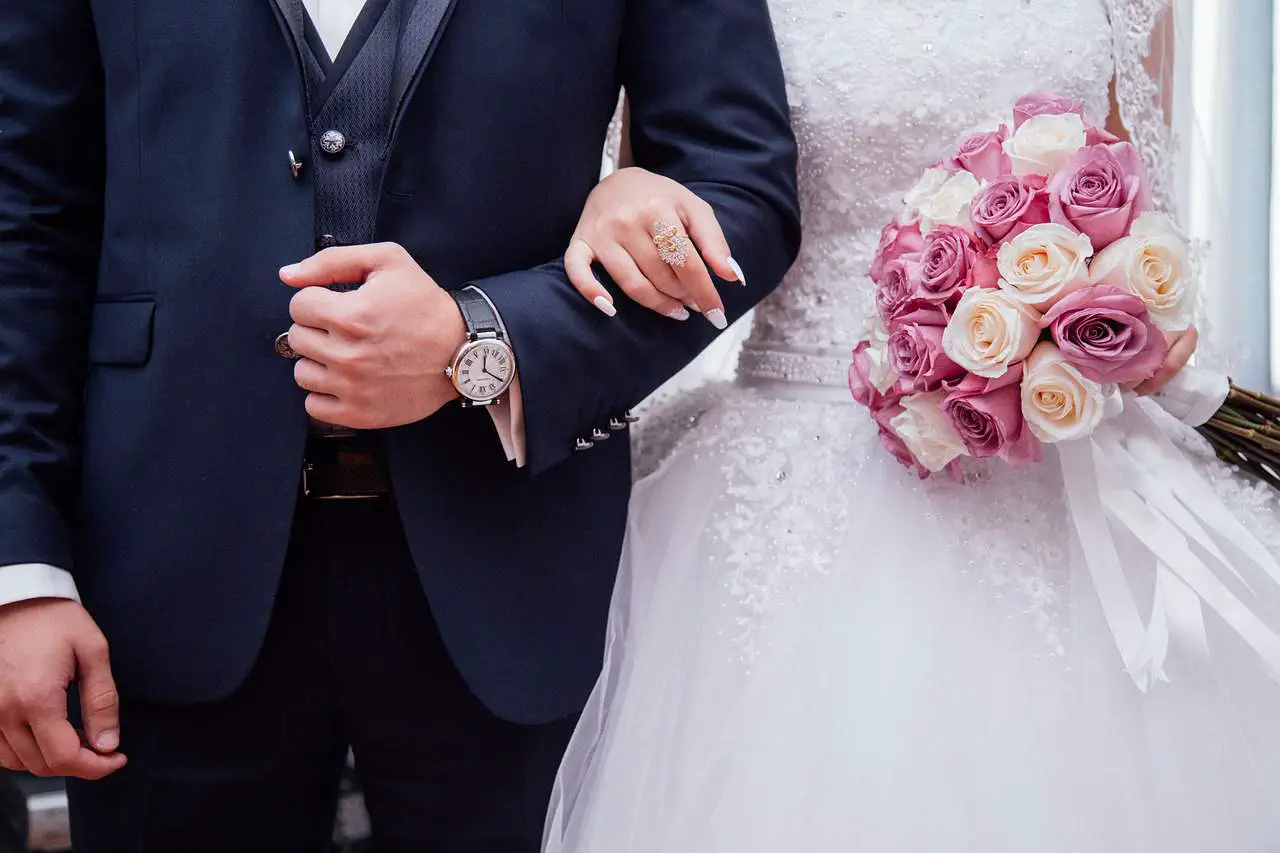Table of Contents
*This post may contain affiliate links. As an Amazon Associate we earn from qualifying purchases.
Planning a wedding is a big feat in itself. If you’re the bride or the groom, you’ve probably asked yourself this basic and question: Who pays for what in a wedding? The good news is that there are actually no set rules when it comes to shouldering expenses for a wedding. These days, the rules are less defined when it comes to who pays for what in a wedding.
So Who Pays for What in a Wedding These Days?
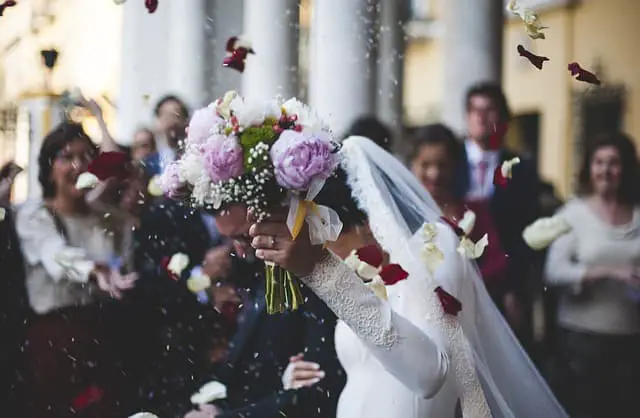
image source: pixabay.com
Traditionally, the bride’s family was solely responsible for all wedding expenses, including the reception. Because of this, the bride’s family was given a major role in the decision-making process when it comes to the preparation and details of both the wedding ceremony and the reception. The groom’s family was welcome to share in the expenses for the reception, which the bride’s family could accept or not.
However, because the average marrying age in modern times has gotten older, the traditional way of deciding who pays for what in a wedding has become passé. The lines have become blurred and both families can now decide on how to divide the expenses; which actually makes budgeting a lot easier. Aside from that, most engaged couples prefer to shoulder the costs of their wedding on their own these days.
Getting married in their thirties (even in their forties) makes engaged couples more financially prepared for the costs required by a matrimonial ceremony. Of course there are also those who get married more than once in their lifetimes. Encore wedding expenses are usually shouldered entirely by the engaged couple.
The Ultimate Guide to ‘Dividing and Conquering’ Wedding Expenses
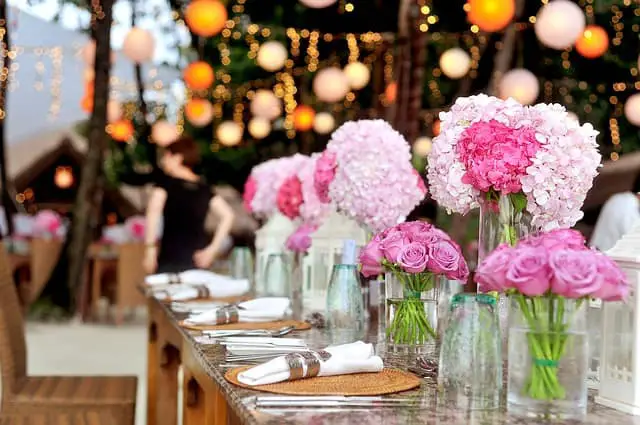
image source: pixabay.com
Of course by “dividing and conquering” we mean dividing the expenses and conquering all the tasks in your to-do-list to ensure that your wedding will be successful, worry-free, and on budget.
If you’re still undecided on how to divide the costs of the wedding or you want to have a general idea and a breakdown of how it usually works, we have a quick guide that you can use to help you through the process of deciphering who pays for what in your wedding.
A word of advice: before getting into the gory details, it would be best for both the bride and the groom’s families to discuss a working budget from which to base all expenses. After all, you wouldn’t want to end up planning for a wedding and a reception that you can’t really afford.
This guide is still loosely based on traditional practices. You’ll notice that the bulk of expenses are shouldered by the bride and the bride’s family for the ceremony and reception, while the groom and the groom’s family cover more of the expenses before and after the wedding.

Expenses for the Bride and the Bride’s Family (Usually)

image source: pixabay.com
1
Engagement Party for the Bride and Groom
An engagement party is not a requirement, but it’s a very welcoming way of bringing the two families together as well as extended family members and friends from both sides. This will create a sense of familiarity and rapport among your wedding guests, making your big day more intimate, merry, and warm.
2
Engagement Announcements and Invitations
This is not always practiced these days, but if it is, the parents of the bride are tasked with shouldering the expense of placing engagement announcements in the local newspapers.
3
Wedding Planning and Reception Expenses
This covers the services of a wedding planner, rental cost for the ceremony and reception sites, wedding cake and catering, transportation for the bride and the bride’s family, music at the ceremony and reception venues, photo and video coverage for the engagement, bridal portraits, as well as the ceremony and reception.
4
Lodging for the Bridesmaids (If Necessary)
If the bridesmaids are from out-of-town and need accommodations, the bride’s family usually shoulders this expense.
5
The Bridal Gown and Trosseau
The bride is the star of the show; thus picking the wedding dress is a crucial decision. The bride’s parents are usually expected to shoulder this expense, along with all the bridal accessories that come with it.
6
Floral Arrangements

image source: pixabay.com
This covers floral arrangements for the ceremony and reception as well as for the bridesmaids. Corsages for special helpers are also paid for by the bride’s parents.
7
Wedding Favors and Gifts
Wedding favors are small tokens of appreciation given to the wedding guests during the reception. They are not usually required, but they do add more charm and make your wedding more memorable for your guests.
8
Security and Insurance
Unbeknownst to some, there is such a thing as wedding insurance. Wedding insurance provides protection from losses that can occur in the event of unforeseen events, such as sudden cancellation due to extreme weather, serious injury, problems with the vendors or the venue, and other factors.
On the other hand, security services during a wedding event also play an important role in keeping the peace; especially if alcohol will be served during the reception.
9
The Groom’s Wedding Ring and Gift
The bride shoulders this expense on her own.
10
Bridesmaids’ Gifts and Luncheon (Optional)
This is usually an expense that is paid for by the bride.
11
Thank You Gifts for the Parents
This is an expense that is traditionally solely paid for by the bride; however more contemporary couples often shoulder the financial burden together.

Expenses for the Groom and the Groom’s Family

image source: pixabay.com
1
The Engagement Ring
This is obviously an expense that has to be paid for by the groom. The groom’s mother may also play a part in providing the engagement ring.
2
Marriage License and Officiant’s Travel, Lodging, and Fees
The groom’s family is in charge of securing the marriage license and providing for the officiant’s fees, as well as travel and lodging (if necessary).
3
The Rehearsal Dinner
This is a very important part of the wedding planning and preparations, and it’s an expense that is usually covered by the groom’s family.
4
The Bride’s Bouquet and Corsage and Corsages for the Mothers and Grandmothers
While this may seem like it should be part of the floral arrangements, the groom or the groom’s family are usually expected to cover this expense.
5
The Bride’s Wedding Ring and Gift
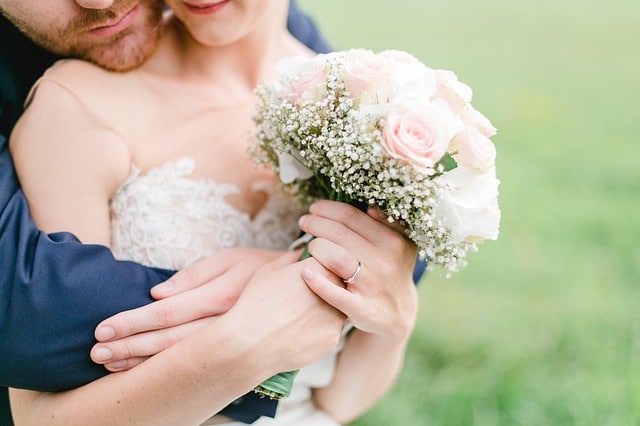
image source: pixabay.com
Just as the bride pays for her groom’s wedding ring and gift, the groom is expected to shoulder the expense for the bride’s wedding ring and gift as well.
6
The Best Man and Groomsmen’s Gifts
The groom is expected to pay for gifts for his own best man and groomsmen.
7
Lodging for Groomsmen (If Necessary)
If the groomsmen are from out-of-town and need accommodations, the groom’s family usually shoulders this expense.
8
Limousine Rental After the Reception
While transportation costs are covered by the bride’s family going to the ceremony and reception, the limousine rental after the wedding is usually shouldered by the groom’s family.
9
Accommodations and Expenses for the Wedding Night and Honeymoon Trip
The groom and the groom’s family are in charge of accommodations for the wedding night, as well as the married couple’s expenses for their honeymoon.
10
Shipping of the Wedding Gifts
Wedding gifts have to be sent from the wedding site to the newly married couple’s home. This is another post-wedding expense that the groom’s family usually covers.
Conclusion
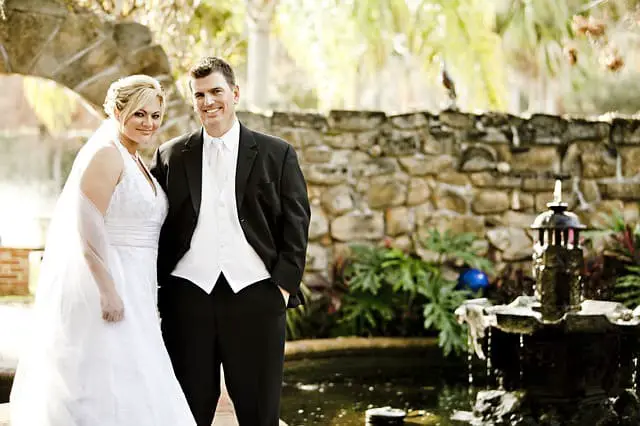
image source: pixabay.com
Now that you have a better idea of how wedding expenses are usually divided between the bride and the groom’s families, you can start planning your dream wedding and delegating responsibilities accordingly.
But remember: these are just guidelines and not rules strictly set in stone when it comes to who pays for what in a wedding. Any bride has dreams of her perfect wedding, but keep in mind that the wedding involves not just the bride and the groom but respective families as well. It’s best to be realistic about your expectations.
Each wedding is unique. It will do you no good to compare your wedding to what other people have had. Some prefer a simple ceremony and splurge more on the honeymoon trip; others prefer to go all the way with the ceremony and do it extravagantly. Regardless, at the end of the day, exchanging your vows and committing your lives to one another are far more important than the trimmings that come along with having a wedding. It really doesn’t matter who pays for what in a wedding or how much they’re willing to pay.
Plan your wedding to a budget that’s amenable to both parties in order to avoid conflict or pressure between the bride and groom’s families during the wedding preparation process. Not all beautiful weddings are extravagant or expensive. All you need is a little creativity and resourcefulness. You can create your own wedding favors and add your own personal touches to make them more memorable.
Think of determining who pays for what in a wedding as more of a feasibility study rather than a tall order. A feasibility study is only an assessment: one that can still be adjusted as necessary in order to meet its objectives.
featured image source: pixabay.com
image icon source: flaticon.com

